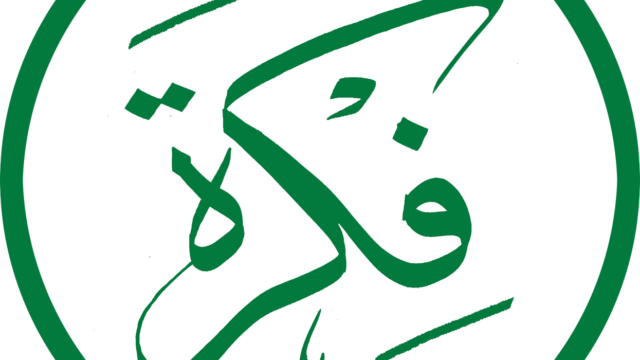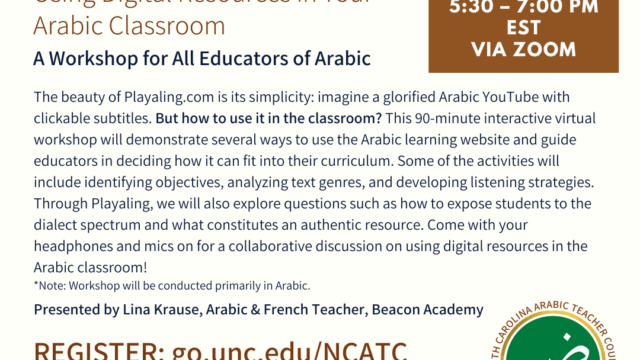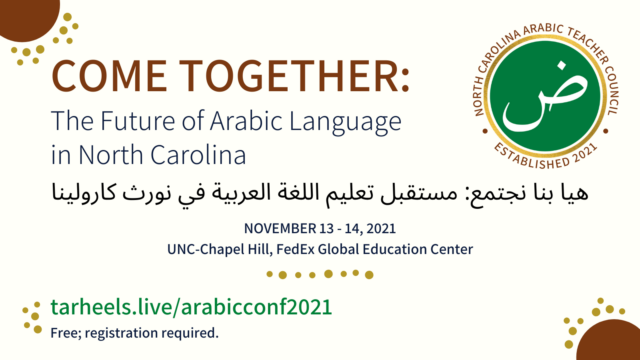The North Carolina Arabic Teacher Council is pleased to host a conference for Arabic language educators this fall: FIKRA: IDEA — Inclusion, Diversity, Equity and Accessibility in Arabic Language and Cultures. Held Oct. 22-23, 2022, at The University of North Carolina at Chapel Hill, this gathering will convene K-16 Arabic educators from diverse institutions to explore and expand the ways in which we teach Arabic language and cultures. Featuring grade level-specific sessions as well as keynote presentations, the conference will generate discussion and action steps to more closely align our classrooms and teaching content with IDEA principles for the future.
The conference will highlight such topics as multilingualism and translanguaging, linguistic inclusion in the language classroom, navigating Arabic as a historically gendered language, the exploration of less commonly taught Arabic dialects from the SWANA region, Arabic speakers in diaspora, and how to engage students in relevant, social justice issues from the region. Attendees will discuss methods, curricula and pedagogy with colleagues to critically evaluate if our current efforts truly represent IDEA.
Marhaban bikom (Welcome to all!)


